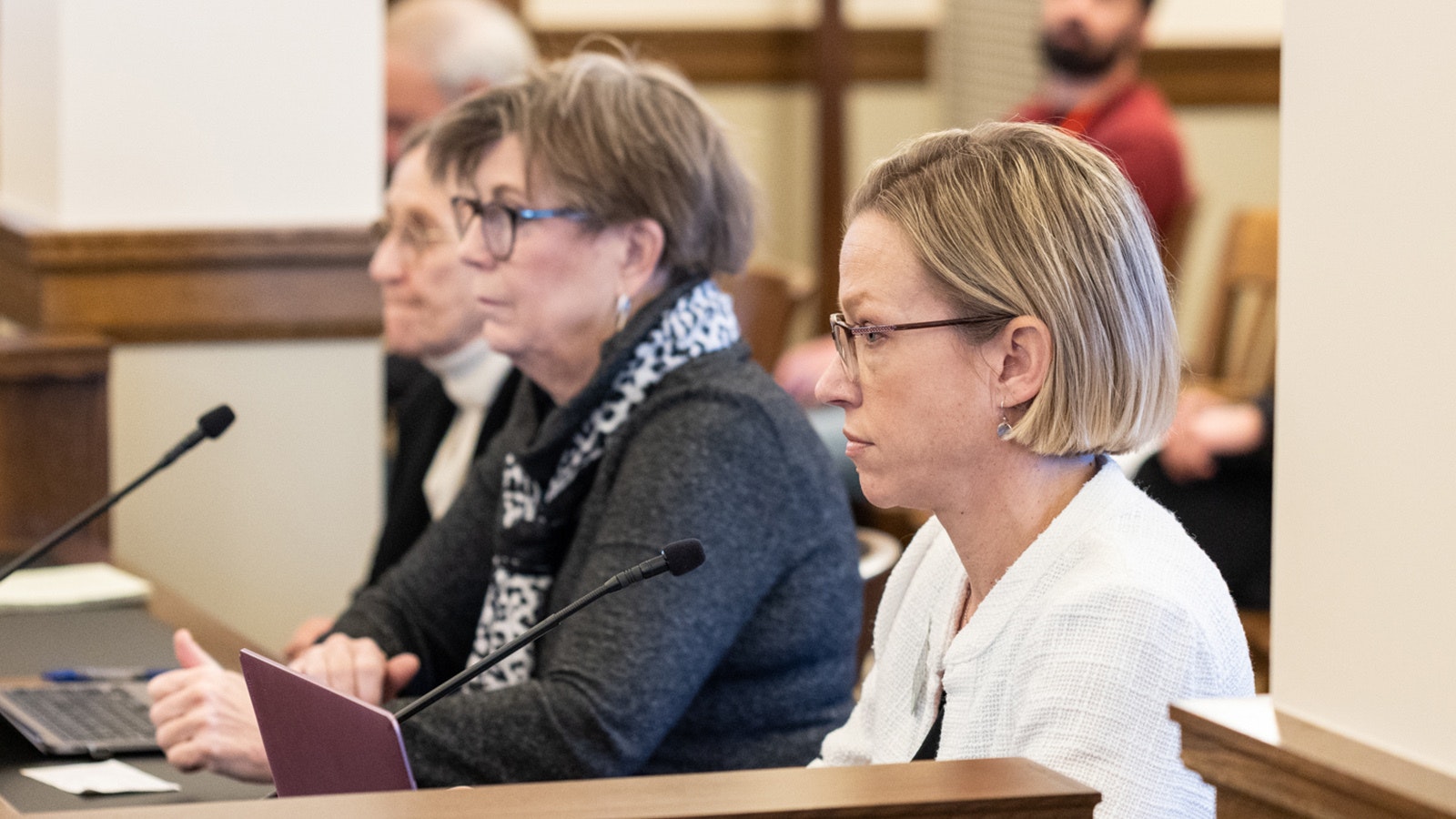The Wyoming Legislature is considering legislation targeting campaign activities like those employed by former Republican U.S. Rep. Liz Cheney last summer leading up to the August primary election.
One mailer sent in early August by the Cheney campaign included request forms for absentee ballots with “OFFICIAL ELECTION DOCUMENT ENCLOSED” emblazoned across them and pre-addressed to return to voters’ respective county clerks.
The forms were sent in envelopes that read “OPEN IMMEDIATELY!” and “Wyoming Absentee Ballot Request Form Enclosed.”
Secretary of State Chuck Gray got one of the Cheney mailers and said the effort was done to make people think it was official information from local elections offices.
“This mass mailing campaign prompted numerous … calls and written complaints to the Secretary of State’s office from outraged Wyomingites who called it misleading, disingenuous and unlike anything Wyoming had seen in an election,” Gray said during the Senate Corporations, Elections and Political Subdivisions Committee meeting on Thursday morning.
These requesting forms were not the absentee ballots themselves.
Still, former Wyoming Secretary of State Ed Buchanan told Cowboy State Daily at the time that he cautioned the Cheney campaign against using “official election” language on campaign literature.

Closing A Loophole
Senate File 131, brought by Sen. Lynn Hutchings, R-Cheyenne, prohibits the delivery of unsolicited absentee ballot request forms to voters.
Gray spoke in support of the legislation as a matter of ensuring faith in elections. He said Cheney’s mailer exploited Wyoming’s existing statutes and damaged the public’s confidence in elections.
Those found guilty of solicitation could be charged criminally with a misdemeanor punishable by up to six months in jail and $1,000 in fines.
Sen. Charles Scott, R-Casper, asked Gray what’s the harm in sending an unsolicited request for an absentee ballot?
“Having done a lot of campaigns myself, I would never send anything like that,” Gray said.
But Gray did send multiple campaign mailers during his Secretary of State bid containing misleading or disproven information.
It’s ‘Predatory’
Gray said the appropriation of a governmental persona is what he finds concerning about these types of activities. He described solicitation of absentee ballots as “problematic behavior,” “predatory tactics” and harassment that he does not believe should be allowed.
“When you’re potentially impersonating a public official, it’s really problematic,” he said.
Gray read a few letters from by the public to his office at the time complaining about the mailers.
He suspects the Cheney campaign researched people who had voted by absentee ballot in the past to drive the campaign.
Voter Confusion
Platte County Clerk Malcolm Ervin cited voter confusion as a reason to prohibit the practice.
He said his office received a few of the Cheney mailers completed and returned, but at a level “dramatically smaller” than the number of actual ballot requests made strictly through his office.
Mary Lankford, a representative of the Wyoming County Clerks Association, said third-party-solicited absentee ballots also can cause confusion when an absentee ballot may already have been requested and received by someone.
“Now they’re receiving another piece of information that says, ‘you need to request an absentee ballot,’” she said. “It’s purely to the advantage of the voters to be able to eliminate some of that junk mail you get at election time.”
Lankford said Wyoming county clerks maintain constant supervision on the status of absentee ballots that have been requested and will not honor multiple requests.
Sen. Eric Barlow, R-Gillette, expressed concern the legislation may restrict free speech.
“I’m trying to understand, is it the confusion we’re trying to prevent here and minimize, what are we actually trying to get to?” he questioned.
Certain Purposes
Jenn Lowe, executive director of the Equality State Policy Center, said SF 131, titled “Prohibition on Delivery of Unsolicited Ballot Forms,” attempts to address an issue that hasn’t yet been fully explored in Wyoming.
“I do think that impersonating a public official or an official state document is an issue that should be addressed; however, what some would consider predatory I would call accommodating,” she said.
Ervin mentioned how in 2020, the state’s 23 county clerks, in coordination with the Secretary of State’s office, sent a mailer to all registered voters in Wyoming informing them of the optional opportunity to absentee vote in lieu of COVID-19 concerns.
“It’s educating registered voters on the options they have to participate in an election,” Lowe said.
Ervin stressed that the clerks do not send unsolicited ballots. He requested an amendment be made to the bill to allow clerks to continue to be able to send request forms, mentioning the possibility of a future pandemic.
“Without that application, we would not send a ballot unsolicited,” he said.
He also spoke to the benefits absentee ballots provide voters who live in particularly rural parts of the state, many miles away from their designated polling place. Ervin mentioned how the nearest voting center for those who live at Mammoth Hot Springs in Yellowstone National Park is more than two hours away.
“You would have to traverse through the park in November, which in many cases would be impossible,” he said. “This informs those voters (that) this is an option you can employ.”
Discussion on the bill will continue Tuesday.





